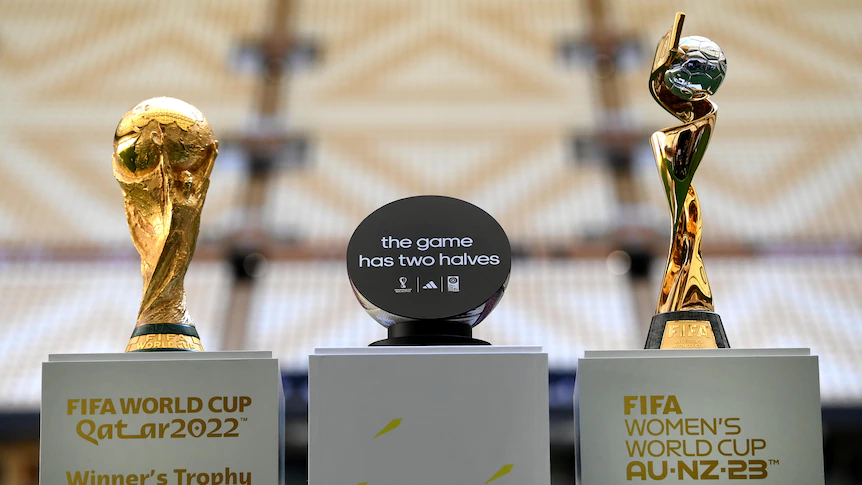
Commissioned by FIFA, the AHRC analysis identified 57 risks associated with Australia’s co-hosting of the event to be staged in numerous cities around the country from July.
Risks raised include the rights of athletes, workers, First Nations people and children, with 21 of them earning a « tier 1 » ranking, the most serious of three tiers.
« In and of itself, that’s not surprising, » AHRC commissioner Lorraine Finlay told The Ticket.
The AHRC handed over its analysis in December 2021.
FIFA responded with a Sustainability Strategy full of colourful diagrams and explainers with buzz words such as « identify », « develop », « promote » and « engage », but short on descriptions about how these so-called priorities are – or will be — acted upon.
Australia’s green and gold decade, as it is often described by sports and government officials, is sold on the legacies that will be left behind by staging expensive international tournaments such as the Women’s World Cup (2023), the Commonwealth Games (2026) and the Olympic and Paralympic Games (2032).
FIFA’s Sustainability Strategy document says its « priorities and initiatives … will continue to evolve ».
« There are some really good things in there, there are some fantastic priorities … but, overall, it doesn’t engage with the risk assessment in a really comprehensive way, » Ms Finlay said.






